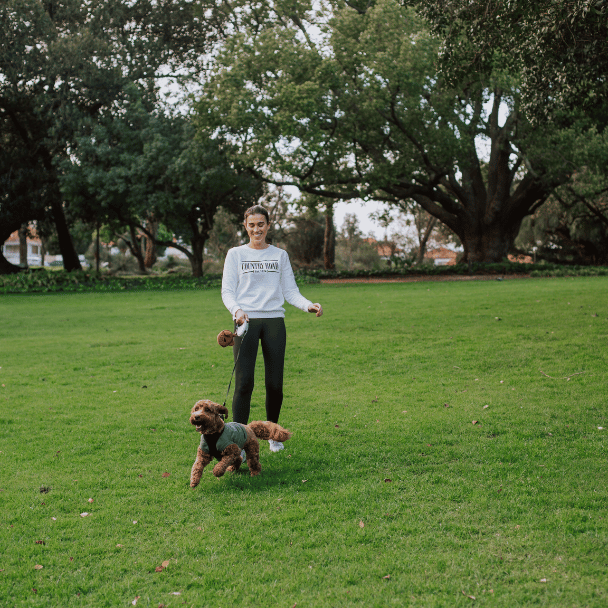Fear Foods in Eating Disorder Recovery
What are fear foods?
Fear foods are foods, which cause a person to experience extreme anxiety or guilt when eaten, often leading to avoidance of these foods.
In my experience, there is no rhyme or reason when it comes to fear foods; a fear food for one person could be a safe food for someone else, demonstrating how the eating disorder's reasons for fearing particular foods are often illogical.
In my work supporting those recovering from eating disorders and disordered eating, I've noticed fear foods trends. Often those who grew up in the 90s fear dietary fats, while younger clients tend to fear carbohydrates. I think we have diet culture to thank for that.
Fear foods have more to do with eating disorders fearmongering than the actual food.
The eating disorder wants to keep you trapped in the eating disorder; without you acting on behaviours, the eating disorder fails to exist.
Why Do We Have Fear Foods?
Often a product of toxic diet culture, anyone can experience fear foods. But, people suffering from an eating disorder or disordered eating commonly experience fear foods, causing them to restrict the variety of foods they eat. Avoiding particular foods and limiting food variety provides the illusion of control and safety, reducing anxiety (in the short term). However, the reality is that (unless you have a life-threatening allergy), no food can hurt you. I’d argue that avoiding particular foods and limiting food variety is more harmful to your physical and mental health than incorporating fear foods into your diet. For me, avoiding particular foods caused my anxiety to skyrocket in the long run. As I feared occasions when these foods would be available, and on most days, I experienced constant stress that something would get in the way of being able to eat only those foods my eating disorder deemed “safe”.
Why do you need to face your fear foods in eating disorder recovery?
Eating disorder thoughts often become automatic. Consequently, recovery requires disrupting and challenging these thoughts.
It takes time to rewire your brain, and professional support can help you identify, separate from and challenge your eating disorder thoughts. While giving in to these thoughts may help you feel better in the moment, doing so will only keep you stuck in your eating disorder.
So, what can you do instead?
The opposite action (e.g., follow your meal plan, eat the food). Repeatedly not acting on your eating disorder thoughts and doing the opposite action means these thoughts will quieten and eventually stop. Exposing yourself to your fear foods will help normalise your relationship with those foods.
How can you know if you have fear foods?
When considering your fear foods, it can be helpful to ask yourself:
What food/s do I avoid keeping in the house?
Do I avoid situations where particular food/s will be available?
Do I experience heightened stress or anxiety about particular food/s being offered or available to me?
What food/s do I have strict and rigid rules about how much, when and how often I can eat them?
Do I experience intense shame or guilt after eating any particular food/s?
How to face your fear foods…
I suggest you begin by listing your fear foods, and for each fear food, rank your level of anxiety on a scale from 1 (very low) – 10 (extreme). Begin challenging yourself to incorporate these foods into your life; starting with the least anxiety-provoking foods and working your way up.
It can be a sort of fear food “to-do list” that you can check off and feel a sense of accomplishment.
You may find it helpful to consider what feels scary about eating the foods on your list. Try systematically going through your feared foods and answering the following questions:
What scares you about this food and/or why do you avoid it?
Where did this fear come from?
Do you plan on avoiding/limiting this food for the rest of your life?
What happens when you eat this food?
Do other people have to fear/avoid this food, and if not, why do you?
How does fearing/avoiding this food benefit you?
What are you giving up by fearing/avoiding this food?
Initially, challenging fear foods will feel scary; this is normal. You’re likely challenging long-held beliefs regarding food and your body, which diet culture has reinforced. It helps to remind yourself what you are working towards; why do you want to repair your relationship with food and your body? What are your reasons for wanting to recover?
People often find it easier to eat a fear food when paired with a safe food. A safe food is food that causes you minimal or no anxiety to eat. Incorporating a fear food with a safe food can help to reduce anxiety and is a powerful way to challenge a fear food.
Consider creating healthy self statements that you can recite when challenging a fear food e.g., "food is fuel for life" or "no food can hurt me more than my eating disorder".
If it is available to you, seek support, particularly for the fear foods higher up in your fear food list.
Consider reaching out to friends, family or members of your treatment team and ask them to eat with you when you are challenging a fear food. As an eating disorder recovery coach, I eat with my clients (depending on their goals). I’ve found that supporting clients to challenge fear foods helps reduce their anxiety and builds their confidence to continue challenging foods independently.
After facing a fear food, it is important to have some distractions planned. I suggest practising some self-care activities or doing something fun. Calming activities can also be incorporated when challenging fear foods (e.g., listening to music or spending time with your pet) to make the experience more manageable. This is especially helpful for the foods that create more fear and anxiety.
Lastly, you cannot wait for the fear to subside before eating the foods in your fear food list. Unfortunately, it doesn’t work that way. You need to challenge the fear by eating the foods and continue to practice this until the fear subsides and you feel neutral about these foods. I promise it will get easier and be worth it in the end.
You deserve to live a life free from your eating disorder.





